We’re funding a record 61 projects in 2021!
This year we’re celebrating an overwhelming number of applications and awards. Heralding a hopeful new cohort of ocean conservationists, young scientists and local initiatives being supported to make a positive change for our planet.
After a bleak year, with ongoing Covid-19 pandemic lockdowns and increasing threats to our oceans, we could do with good news. As the foundation celebrates its 18th year dedicated to protecting life, especially sharks and rays, in our oceans, we have found hope in our biggest-ever cohort of grant recipients. We continue to invest in research, conservation and education projects, albeit with experience now gained and looking ahead to our evolving conservation strategy in a changing world. This year, the foundation exceeded its average of 50 projects funded annually by announcing 61 grant awards for 2021 and received a 50% increase in applications for its keystone grants. Never before has the number of grant applications been so high: an optimistic indication that despite the mounting challenges, there is willpower to turn the tide in the conservation sector. From researchers harnessing citizen science to solve local problems, to projects that meet current conservation crises with cutting-edge technology, this year’s grant recipients span all seven continents and embrace a new era of innovation, communication and compassion.
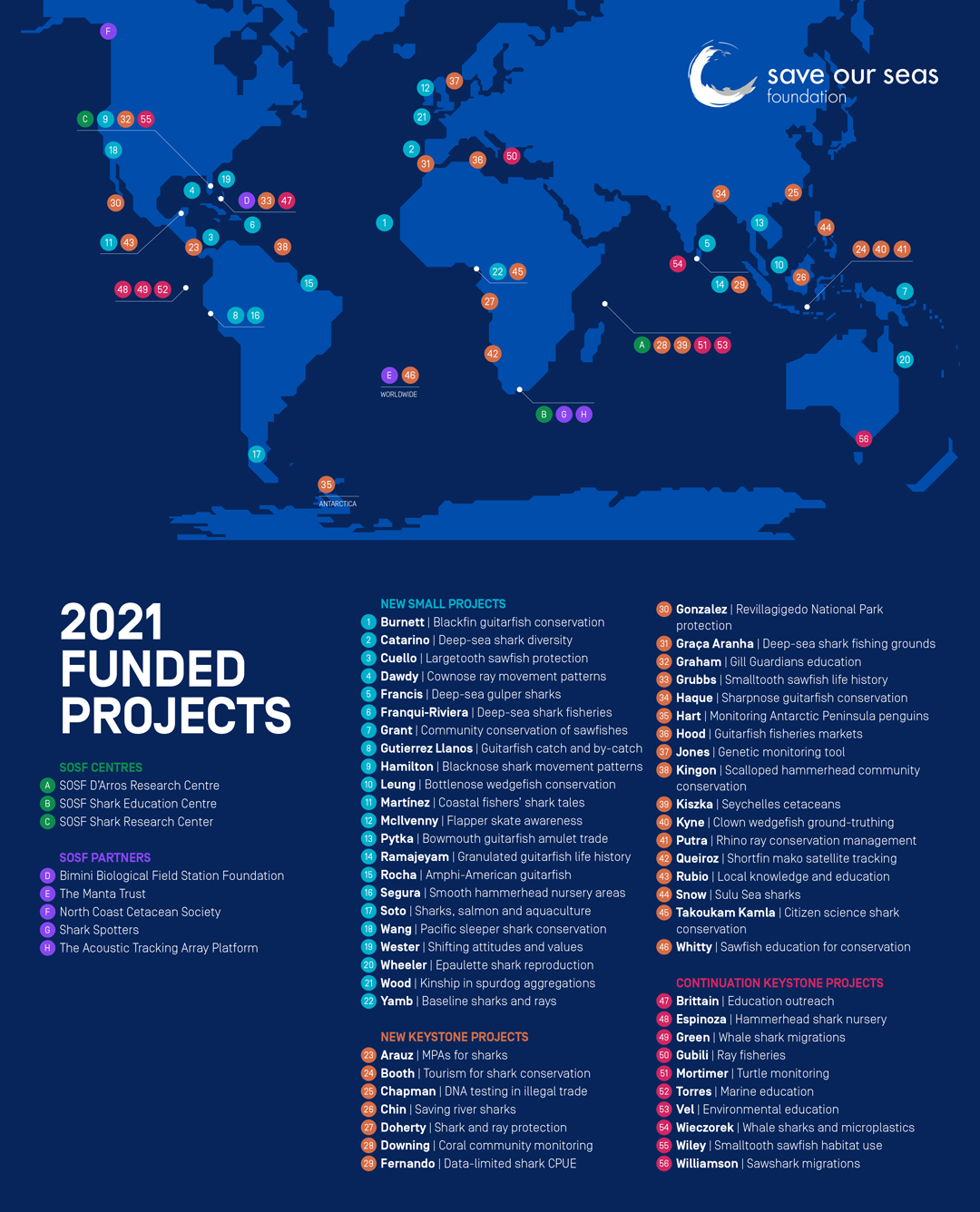
Learning to listen, and to incorporate existing local knowledge, is important to Ilse Martinez, one of 22 Small Grant recipients for 2021. Working with fishers around the largest coastal lagoon in southeast Mexico to glean insights from their lived experiences, Ilse’s project demonstrates one of the Foundation’s philosophies of fostering awareness beyond the boundaries of traditional scientific publications. Other Small Grant recipients, like Fabio David Cuello Mercado, are also emphasising an inclusive approach: he is training local personnel to save Critically Endangered largetooth sawfish off the coast of Colombia.
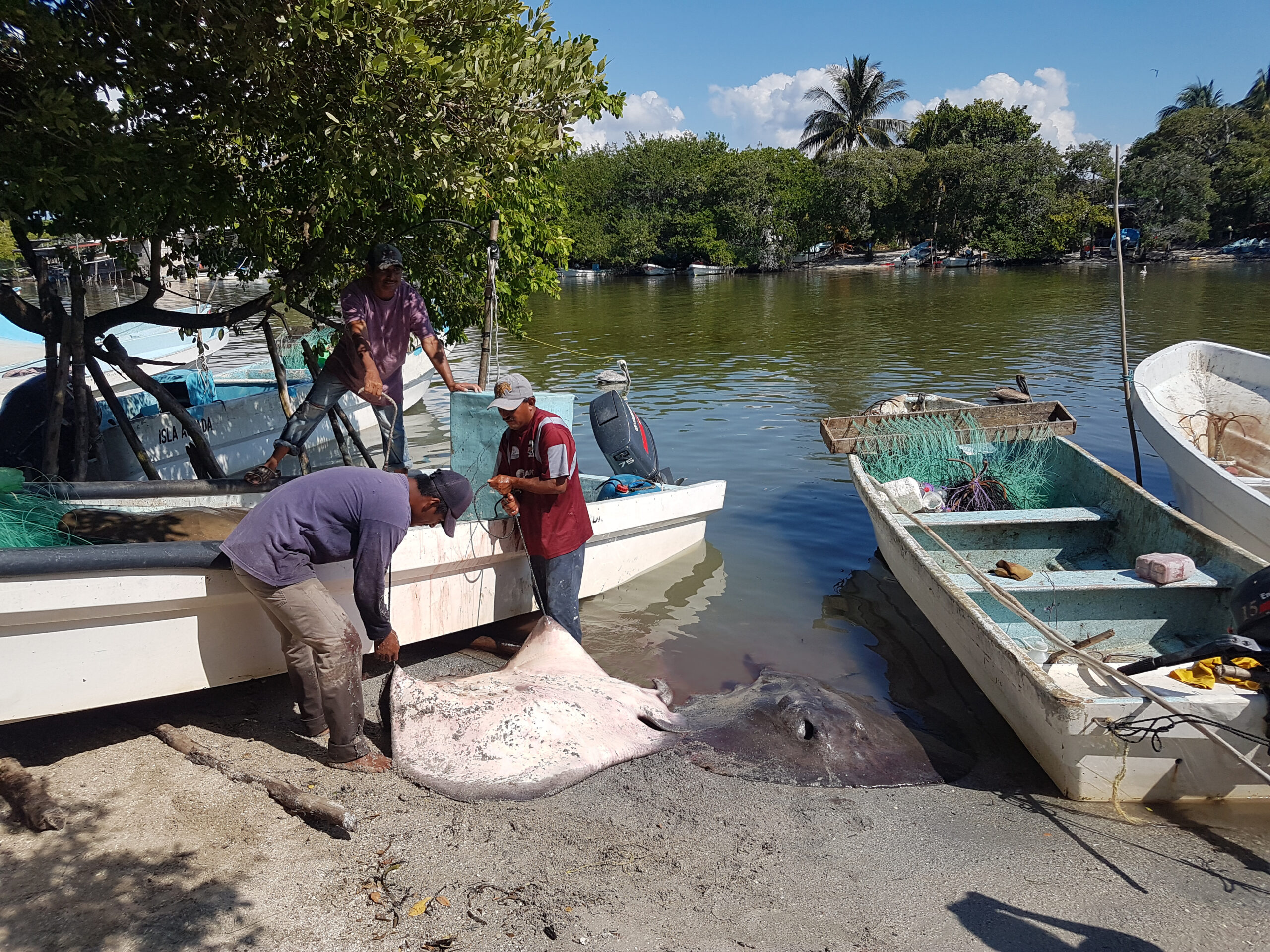
Local Mexican fishers landing their catch for the day. Photo © Ilse Martinez
Our oceans are getting noisier and busier as ocean animals compete with us for sea space. Jeremy Kiszka is one of 24 new Keystone Grant recipients for 2021 and he is monitoring blue whales and other cetaceans visiting Seychelles. When do they visit, and why? Jeremy spends hours observing whales and dolphins from a boat to document their behaviour, where they move and what they do. He uses their calls to identify whether they’re feeding or mating, and where they come from, hoping to identify important areas to protect for Seychelles’ cetaceans.
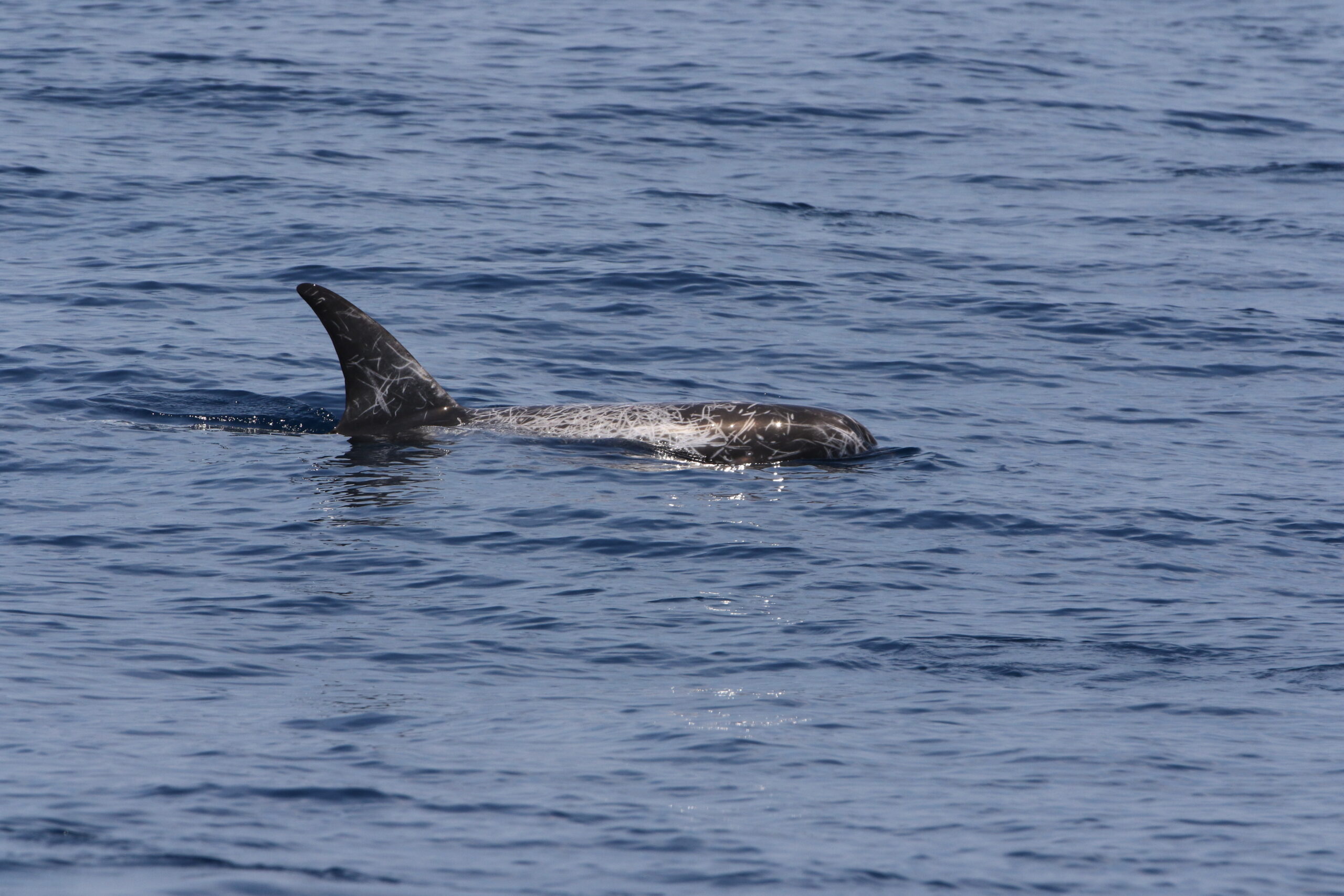
A Risso’s dolphin in Seychelles, November 2020. Photo © Florida International University
Some Keystone Grant recipients, like Demian Chapman, are tackling the illegal trade in ‘rhino rays’: the guitarfishes, giant guitarfishes and wedgefishes nicknamed for their pointy snouts and Endangered status. He is developing DNA tools to help border control officers in Hong Kong to identify illegal shark products. Others, like Aristide Takoukam Kamla, are visionary in their quest to gather information for regions where we know little of sharks and rays. Aristide has created a citizen science platform and mobile app for fishermen across Cameroon’s 400 km coastline to record sightings of marine life: the information he gathers will be some of the first for the region.
He goes on to say that, ‘as a collective, project leaders have focused their work primarily on shark, skate, ray and sawfish species, many of which are listed as Endangered and continue to feel intense pressure from human activities worldwide.’
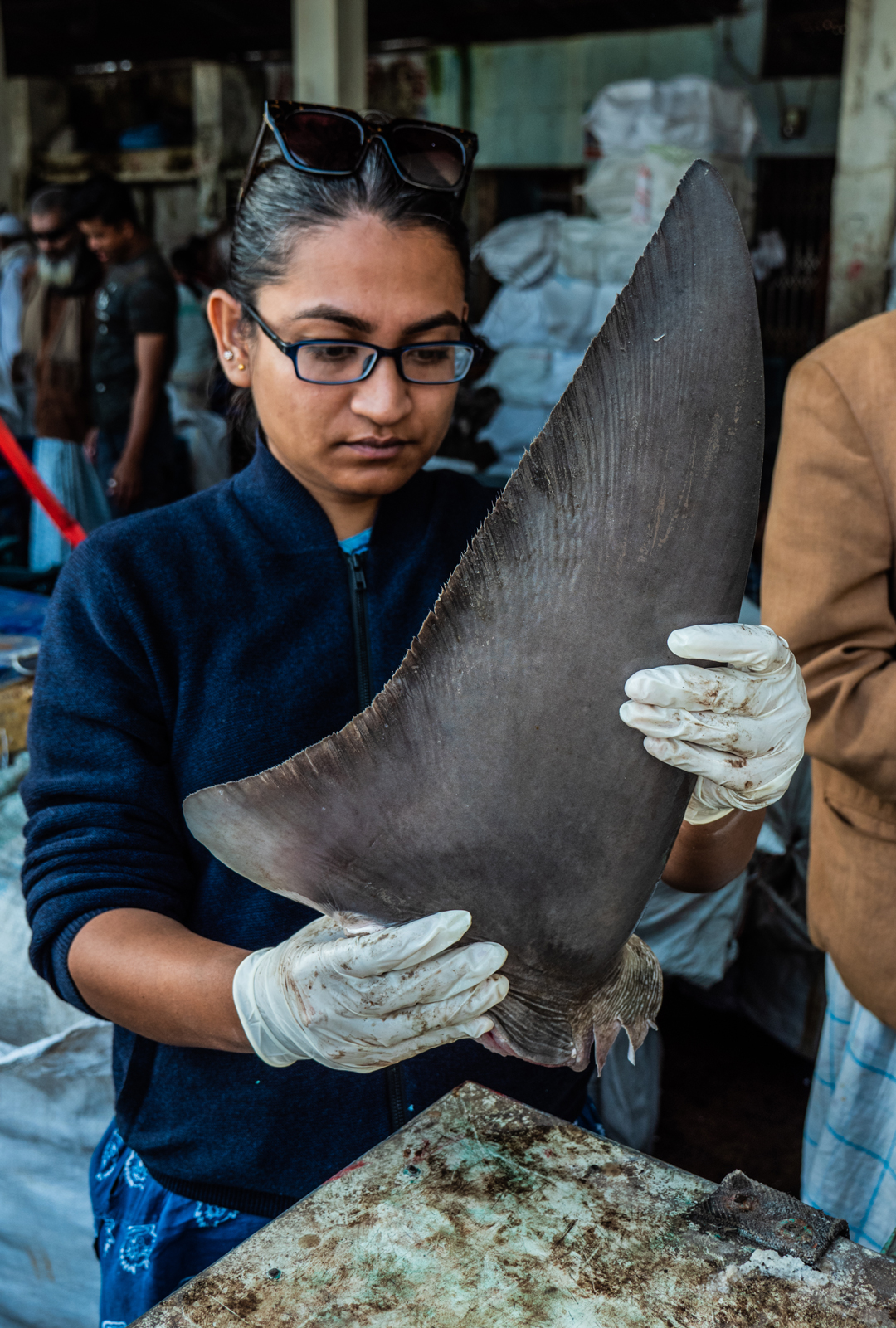
Project leader Alifa Bintha Haque collecting data at a Bangladesh landing site. Photo by Oliver Deppert | © Save Our Seas Foundation
The Foundation continues to fund the SOSF D’Arros Research Centre in Seychelles, the SOSF Shark Education Centre in South Africa and the SOSF Shark Research Centre in the United States of America. Its long-standing partners – the Bimini Biological Field Station Foundation, Manta Trust, North Coast Cetacean Society, Shark Spotters and The Acoustic Tracking Array Platform – all received renewed funding. Continuity, long-term monitoring and collaboration remain at the core of these relationships. (link to centres and partners)
‘Our innovative range of projects for 2021 gives me great cause for optimism at a time when we need to rethink our relationship with the environment,’ explains the Founder of the SOSF, His Excellency Abdulmohsen Abdulmalik Al-Sheikh.
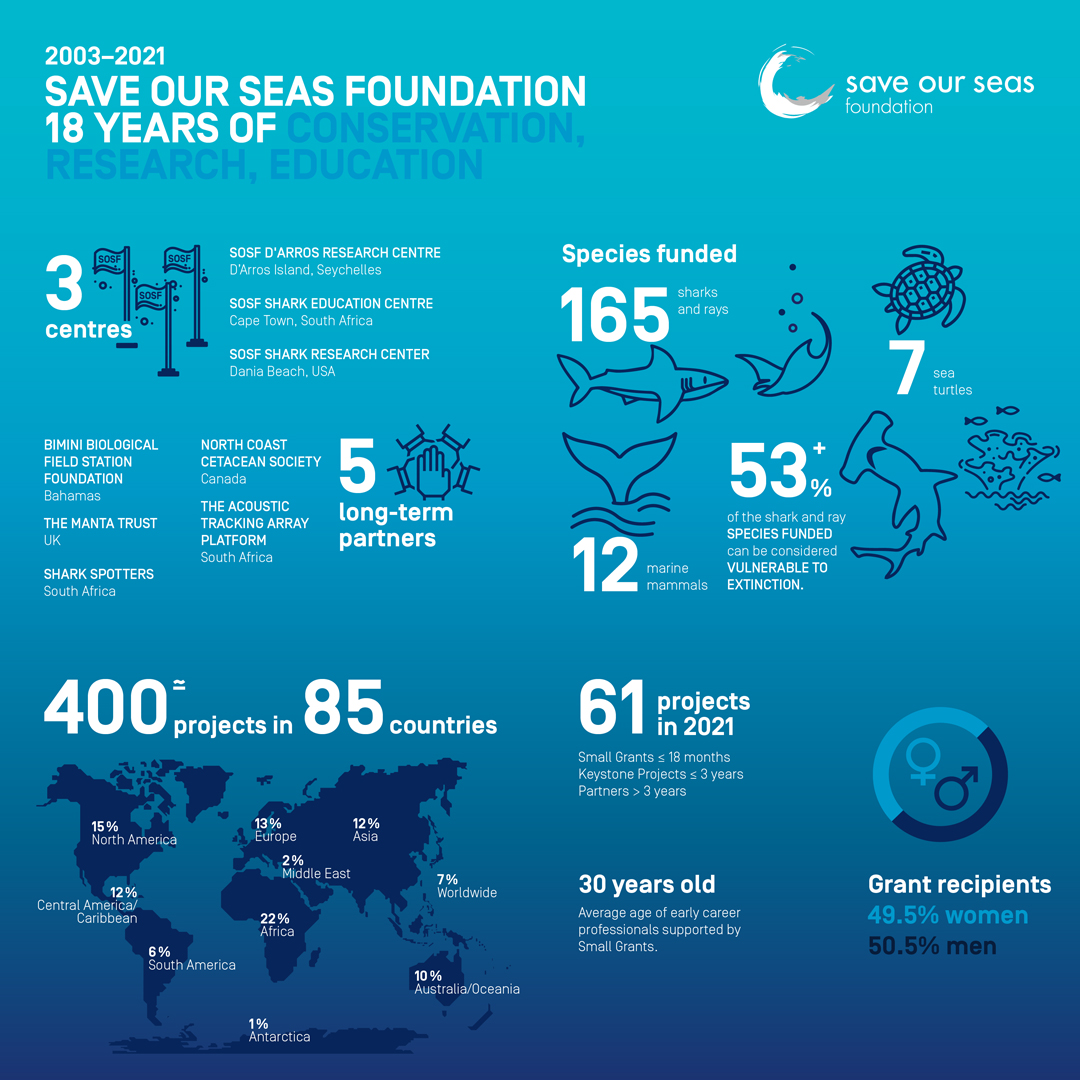
Whether better protecting baby scalloped hammerhead sharks in their nursery grounds like Kelly Kingon, gathering data on sharks in Congo like Phil Doherty, or diving in to protect deep-sea sharks in fishing grounds like Sofia Graça Aranha, all 2021 Project Leaders join the almost 400 projects funded in more than 80 countries around the globe since the Foundation’s inception. They passionately uphold the Founder’s wish to make a lasting impact on the health of our oceans and ultimately for every person on the planet. To learn more and follow project news, visit the Project Leader story section here and follow the SOSF on social media.

Project leader Sofia Graça Aranha collecting data from deep-sea sharks and chondrocytes caught in Portugal’s southern Mediterranean and Atlantic waters. Photo © Sofia Graça Aranha
